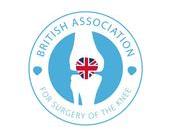BOAST - Revision Total Knee Replacement Surgical Practice Guidelines


Date Published: August 2020
Last Updated: August 2020
Background and justification
The volume of primary and revision knee replacement (KR) is increasing in the UK. Revision KR is expensive and technically challenging. This BOAST has been produced in order to optimise patient outcomes and improve cost-effectiveness. This document should be read in parallel with the other two standards published simultaneously which cover problematic knee replacement and prosthetic joint infection in knee replacement.
Inclusion:
All patients in whom a revision knee replacement is being considered.
Summary of Audit Standards
ORGANISATION:
- Revision KR services within the NHS should be delivered across coordinated networks.
- All networks should regularly audit their practices, and should (both at the outset and annually once set-up) assure themselves that units (and the surgeons within them) that are undertaking revision KR are predicted and/or achieving suitable volumes of these procedures and are meeting core quality metrics for these procedures (see footnote*). A revision is defined as any procedure generating a NJR K2 form. Each centre should have a nominated revision KR lead.
- Units should aim to discuss 100% of the more complex revisions e.g. Infection, significant bone loss or any re-revision at the regional MDT. A complexity grading tool* should be used to aid communication and allow identification of these complex cases (R2 and R3) that may need transfer.
- Those orthopaedic units that do not do or are stopping undertaking knee revisions should have mechanisms to refer cases on via their network (see footnote*).Revision KR units should only use loan implant equipment in exceptional circumstances.
- Revision KR units should provide ring-fenced, dedicated elective beds in an orthopaedic ward.
- All revision KR patients should have access to advanced post-operative nursing care (level 1.5 or POSU) for their first 24-48hrs. HDU facilities must be available in revision KR specialist centres.
- All elective revision surgery should be performed in dedicated clean elective arthroplasty theatres.
STRUCTURE:
- All patients being considered for revision KR require discussion at a revision KR MDT.
- Each network should coordinate a regional MDT.
- Formal communication between units should take place at regular (minimum twice-monthly) regional MDT meetings. Revision KR leads or their representatives should attend from every revision unit (either in person or via teleconference).
- The revision KR MDT should comprise orthopaedic surgeons, and where possible, specialist nurses and rehabilitation teams. Access to plastic surgeons and allied specialties should be available either locally or through a regional network.
- If cases of suspected or confirmed infection are discussed, the MDT must comprise orthopaedic surgeons, infectious disease physicians or microbiologists, specialist nurses, an MDT coordinator and administrative support. The MDT should also have agreed access to pharmacists, rehabilitation teams, plastic surgeons and allied specialties as required.
- The purpose of the MDT is to ensure that a plan is agreed and documented by those present in advance of the surgery.
- All MDT discussions should be standardised and recorded. Outcomes should be audited.
SURGEONS:
- Surgeons must work in units with at least two surgeons regularly undertaking revision KR.
- Dual consultant operating is supported and encouraged particularly in circumstances where junior consultants are gaining experience.
- Surgeons doing revision KR work should maintain an appropriate surgical volume and should engage in dedicated continued medical education.
REFERRAL:
- Standardised referral pathways are required to facilitate patient transfer for both elective and acute settings, facilitated by coordinators and online referral platforms.
- Out of hours referrals should take place via on-call orthopaedic teams and reviewed early the following day.
- Patients with a Problematic KR should be investigated and managed according to the BOAST ‘Investigation and Management of Patients with Problematic Knee Replacements’.
- Patients with known or suspected infection should be managed via a regional MDT, coordinated by a specialist centre, according to the BOAST ‘Investigation and Management of Prosthetic Joint Infection in Knee Replacement’.
Evidence Base:
Phillips JRA, Al-Mouazzen L, Morgan-Jones R, Murray JR, Porteous AJ, Toms AD. Revision knee complexity classification—RKCC: a common-sense guide for surgeons to support regional clinical networking in revision knee surgery. Knee Surg Sports Traumatol Arthrosc. Springer Berlin Heidelberg; 2019 Mar 8;27(4):1011–7.
Footnote
* This document refers in several places to networks and the designation of units that do or don’t undertake knee revision procedures. There had previously been a proposed programme led by NHS England to establish these networks. However, this has been paused due to COVID-19. Until such time as that process restarts, we encourage regions to consider whether networks could be set up if these are not already in place. Specific consideration should be given as to designating of the centres that will and will not undertake these procedures, bearing in mind the following factors:
- In some regions there are already patterns of referral locally that would mean it is obvious which units should be the main centres that continue with knee revisions, but not in all.
- Existing volumes of procedures should be a factor in this decision process, in order to consolidate expertise in those units with the greatest experience, but this may not be the only factor. In general, we would expect to see that units and surgeons who are undertaking revision knee replacement do so regularly; units should be expected to achieve an annual unit volume of 30+ and an individual surgeon achieving a volume of 15+ (though consideration will need to be given to surgeons on extended leave due to sickness/maternity/etc, those that are winding up or down at the beginning/end of career, disruption due to COVID-19 and other similar issues). This should be audited annually by the network along with quality metrics.
- If a number of smaller units propose to rationalise their knee revision work at one hospital, this could mean higher volumes achieved at a site previously undertaking lower numbers, so both past performance and future projected workload should be considered.
- We also recognise that the COVID-19 situation has meant that some hospitals and regions are reorganising the sites at which care is delivered (e.g. hot/cold splits), and this may influence the choice of which units continue to do revision knee work.
